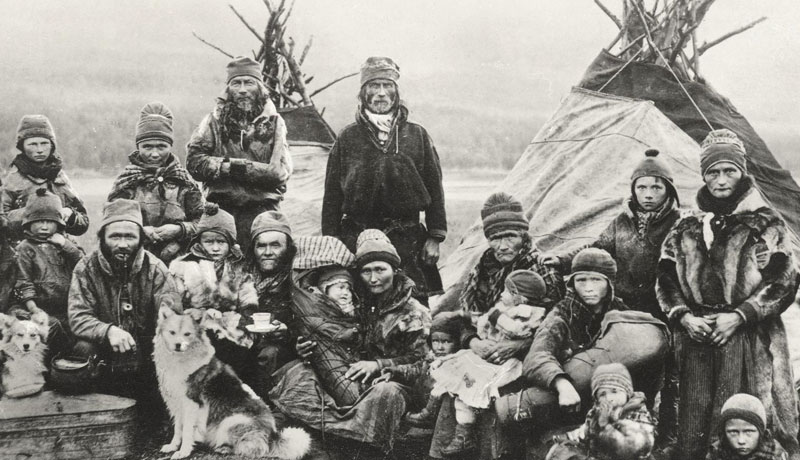Sunday, June 8th
The Sami (Lapp) people are an indigenous population who form an ethnic minority in Norway, Sweden, Finland and Russia. Evidence of possible Sami settlement in Finnmark, the northernmost province of Norway, dates back to the Komsa culture (7000-2500 BC). Traditionally, the Sami way of life has been based on self-sufficient extended-family communities called siida whose economic base is provided in salmon fishing, whaling, the trapping of beaver and the hunting and herding of reindeer. The Sami’s cultural tradition has been enlivened in recent years through the movement of indigenous people all over the globe. In particular, collective interaction between the Sami and indigenous peoples of North America have allowed for a rich exchange of their similar and diverse traditions. This symposium will examine Sami history and traditions, giving some comparison to North American Indians and an outlook for indigenous cultural identity in the 21st century.
Lecture More Than a Hundred Words for Snow: Sami Language and Tradition
Harald Gaski, Professor of Sami Language and Literature (University of Tromsø, Norway) and author of numerous books on Sami issues including Sami Culture in a New Era: the Norwegian Sami Experience. The Sami people of Northern Scandinavia and the Kola peninsula in Russia represent an ancient Arctic culture which is struggling for existence while adjusting to a modern way of life. In Gaski’s presentation we will get a brief overview of Sami history and get better acquainted with the traditional worldview of the Sami. We will also learn about how new media is innovatively incorporating an expression of Sami identity today.
Lecture Indigenous Peoples on Two Continents: Considerations on Reclaiming and Renewing Sami and Native American Societies
Rauna Kuokkanen, Professor of Comparative Literature (University of British Columbia), founding member of Finnish Sami Youth Organization and specialist in comparative Sami and North American Indian literature. Indigenous peoples worldwide share many similarities in terms of their histories and cultures as well as contemporary developments such as the struggle for self-determination. Kuokkanen’s presentation offers a comparative perspective on some of the central trends in these processes taking place in Samiland and in North America.
Lecture Sami Arts: A Source of Spiritual Survival and Cultural Identity
In addition to their beauty and use in traditional Sami life and celebration, Sami arts are a key to maintaining Sami identity. Internationally known Sami artist Rose-Marie Huuva will share the many forms of Sami art, showing slide images from the Ajtte Swedish Mountain and Sami Museum in Jokkmokk, Sweden.
Panel Discussion What Does It Mean to Be “Indigenous” in the 21st Century?
Moderated by Faith Fjeld.
Performance The Sami Joik: A Way of Understanding Nature
Ande Somby, popular Sami traditional and contemporary joiker (joik singer), lawyer and political activist, will demonstrate the oldest musical expression still alive in Europe. Dr. Somby will also perform with popular San Francisco-based pianist Larry Vukovich, demonstrating joik in its modern jazz interpretations.
On-site Exhibit
Traditional Sami crafts from the Nathan Muus – Saami Báiki Foundation collection will be on display in the Cowell Theater lobby throughout the day of the program.
Presenters
Faith Field, American Indian Studies, San Francisco State University
Harald Gaski, Sami Literature, U of Tromso, Norway
Rose-Marie Huuva, artist, poet, designer
Rauna Kuokkanen, Sami native of Finland, U of British Colombua
Ande Somby, Law, U of Tromso, Norway
Larry Vuckovich Trio, music
